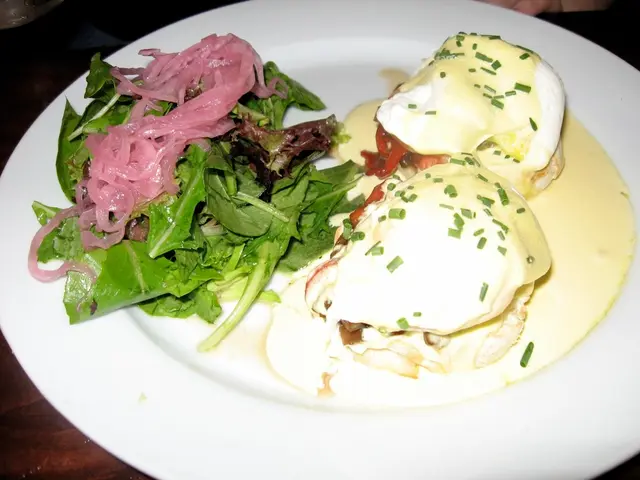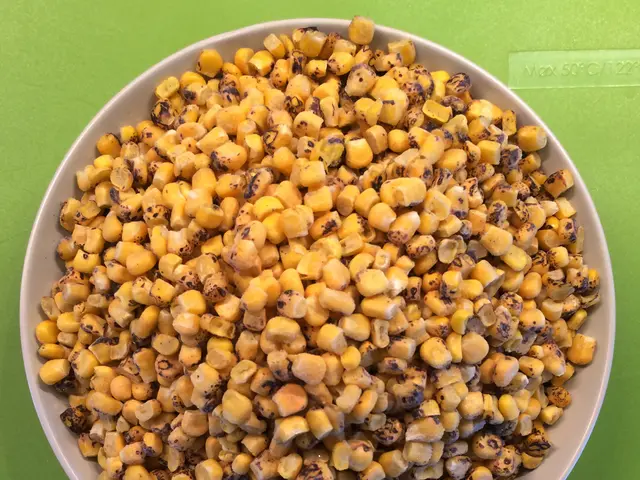The Overlooked Practice of Idleness-and Why Your Mind yearns for It
In today's relentless world, it's hard as hell to just sit, ya know? Sitting there, doing bloody nothing without thinking about the next task or scrolling through your smartphone. Well, it's time to break free from that cycle because neuroscience says your brain frickin' needs it!
In this hectic culture that puts hustle on a pedestal, stillness is almost a forbidden fruit. But here's the kicker: your frickin' brain requires idleness just as much as it needs action.
That's right. Turns out, doing jack sh*t might just be the most productive thing you can do for your brain.
Here's the lowdown:
The Productivity Catch-22
We live by calendars and checklists, and while structure has its place, the underlying message is clear: you're only worth what you produce. Think education must be "informative"? Leisure must be "productive"? Screw that noise.
But here's the twist: brains don't perform best under constant stimulation. Stressing your brain non-stop is like trying to build a muscle by never letting it rest; eventually, it just breaks down.
What the Hell is "Doing Nothing" Anyway?
Let's be clear: doing nothing doesn't mean zoning out in front of a screen or aimlessly scrolling through endless social media feeds. That's just passive consumption.
True idleness is about non-goal-directed mental space. It might look like:
- Sitting on a park bench with no phone
- Staring out the window without judging yourself
- Lying on the floor and letting your thoughts wander
- Taking a walk with no specific destination or with no soundtrack
It's the absence of input and output – a kind of mental exhale that modern life rarely allows.
Brain Science for Low-Effort Intellectuals
When you're not focused on any task, your brain doesn't power down like you might think. Instead, it switches to what neuroscientists call the default mode network (DMN).
This network kicks in during rest, daydreaming, and thinking deeply – and it's where some of your brain's most important backstage work happens.
Breaking Down the DMN:
- Autobiographical memory and self-reflection
- Future planning and imaginative simulation
- Emotional processing and social reasoning
- Creative problem-solving and insight
In other words, your brain gets smarter when you let it breath.
Brain Overload: constant stimulation is draining the hell outta' you
Always switching tasks, answering emails, checking updates? Your brain stays in task-positive mode, which burns through:
- Energy
- Working memory capacity
- Dopamine supplies
If you don't take time off, these systems get depleted. You may feel foggy, irritable, or disconnected – not because you're a lazy b*stard, but because your brain is overloaded.
Life Gets More Creative When You Take It Easy
Ever had an amazing idea come to you during the shower, while driving, or during a walk? That's no accident.
When you give your mind some slack, it has time to connect unrelated ideas, simulate outcomes, and experiment mentally. Einstein called this "combinatory play." Psychologists call it incubation. Whatever you call it – it doesn't happen on demand.
Creative genius requires time and space. And in a world that never stops talking, that space is often smothered in noise.
The War Against Stillness
In Western cultures, rest has long been viewed with suspicion. Idleness is often seen as:
- Laziness
- Unproductive
- Wasted potential
But wise old philosophers said it differently:
- Greeks: Practiced "scholē," or contemplative leisure.
- Taoists: Embraced "wu wei," or effortless action through alignment.
- Christian mystics: Valued stillness as divine receptivity.
Throughout history, doing nothing was seen as necessary for wisdom, not a barrier to it.
Zen Your Brain: Practical Ways to Relax and Reboot
1. Schedule Downtime
Block off time in your day with no agenda. Write "do nothing" on your calendar, and treat it like any other meeting – with your mind.
2. Embrace Boredom
When you're bored, don't reach for your phone. Notice the discomfort. Sit with it. Often, it's in that pause that clarity begins to surface.
3. Create Input-Free Zones
- Take device-free walks.
- Eat meals without screens or distractions.
- Designate 30 minutes each week as tech-free reflection time.
4. Practice the Art of Low-Effort Mental Tasks
These include things like:
- Stargazing
- People-watching
- Sketching or freewriting with no specific outcome in mind
They're not quite active, not quite passive – perfect for encouraging open-ended thought.
Can Nootropics Make Your Brain Smarter?
Interestingly, some folks use nootropic supplements not to stimulate work, but to support the brain's restorative phases.
Helpful compounds include:
- L-theanine: Promotes calm focus and helps facilitate entry into relaxed, default-mode states.
- Citicoline: Supports clarity and cognitive recovery following mental exertion.
- Ashwagandha: An adaptogen known to lower cortisol and reduce overstimulation.
When used wisely, these supplements can support the mental terrain where true rest and insight thrive.
Rest is Not Wasted Time. It's Reboot Time
When you pause, you give your brain a chance to:
- Integrate what it's learned
- Make sense of scattered thoughts
- Recover from hidden cognitive fatigue
These aren't luxuries. They're essentials.
Doing nothing is not an escape from productivity – it's a foundation for it. It's in the space between tasks, between thoughts, between noise, that the brain catches its breath. It's where clarity grows. Where insight is born.
In a world constantly pushing for more, stillness is a F**king radical act of mental self-care. The smartest brains aren't the ones that go the hardest – they're the ones that know when to take a break.
- Your brain's performance relies not only on action but also on idleness, making doing nothing a potentially productive action.
- In today's culture, constantly pursuing productivity sends the message that one's worth is tied to production, which can negatively impact brain health.
- Constant stimulation can stress the brain, leading to depletion of energy, working memory capacity, and dopamine supplies.
- Idle time allows the brain to switch to the default mode network (DMN), which is crucial for autobiographical memory, self-reflection, future planning, creative problem-solving, and emotional processing.
- Schedule downtime, embrace boredom, create input-free zones, and practice low-effort mental tasks to encourage open-ended thought and relaxation.
- Nootropic supplements, like L-theanine, Citicoline, and Ashwagandha, can support the brain's restorative phases and help facilitate mental clarity and insight.
- Wise philosophers from various cultures, such as the Greeks, Taoists, and Christian mystics, viewed idleness as necessary for gaining wisdom rather than a barrier to it.
- Creativity often arises from giving the mind space and time to connect unrelated ideas, simulate outcomes, and experiment mentally.
- In today's fast-paced world, stillness is essential for mental health and well-being, as it allows the brain to integrate information, make sense of scattered thoughts, and recover from hidden cognitive fatigue.
- By taking breaks and embracing idleness, one can foster a foundation for increased productivity, focus, and overall brain health, ultimately leading to a more balanced and fulfilling lifestyle.








